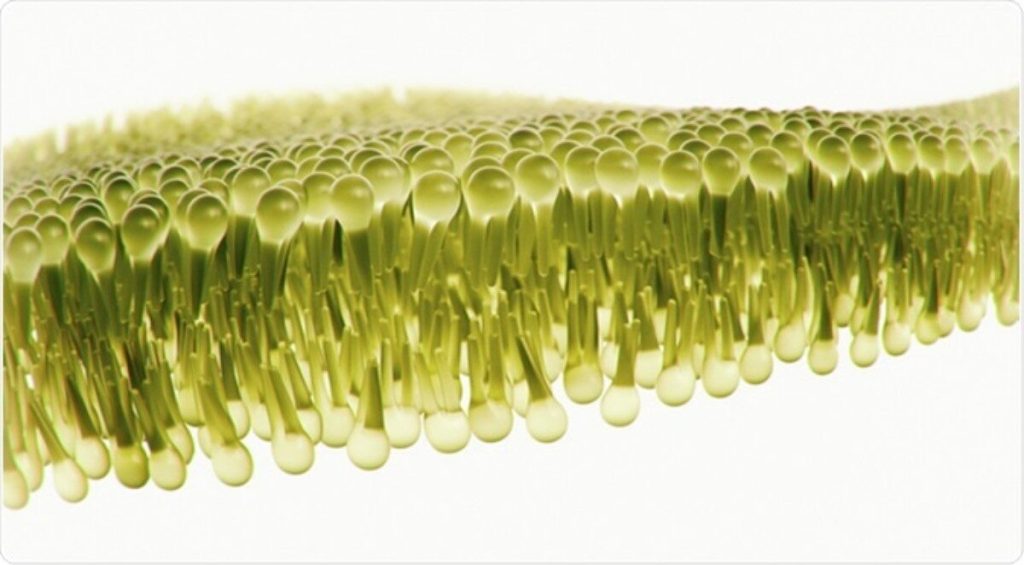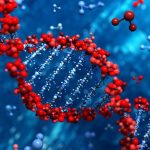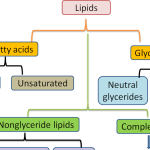Lipids include various biomolecules whose common property is their insolubility in water.
Lipids include a variety of molecular types, such as neutral fats, oils, steroids, and waxes. Unlike other classes of biomolecules, lipids do not form large polymers. Two or three fatty acids are usually polymerized with glycerol, but other lipids, such as steroids, do not form polymers.
Lipids perform many important functions in biological systems, including:
· contributing to the structure of membranes that enclose cells and cell compartments
· protecting against dessication (drying out)
· storing concentrated energy
· insulating against cold
· absorbing shocks
· regulating cell activities by hormone actions
Steroids function both as hormones (such as the sex hormones estrogen and testosterone) and as structural material (such as cholesterol, an integral part of animal cell membranes).


